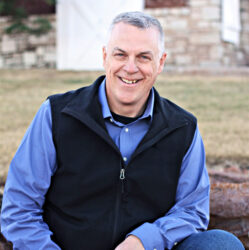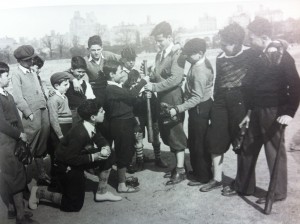 This morning a friend of mine passed away. He had lived a long life, but unfortunately had struggled much during these last few months and years. Without a doubt this gentlemen was an inspiration to me, and not to me alone. His faithful spirit and gentle demeanor served as an encouragement to all you had the privilege of knowing him. When I heard of his passing this morning, I cried. Not because I grieved for his soul, or was unsure of his relationship with God; the tears came because I wasn’t ready to say ‘good bye’. There were still things I wanted to say to him and memories I wanted to share, but during the early hours on Sunday morning (March 25th), in the warm embrace of his family he slipped away to be with his Father. Perhaps it’s fitting that he died on a Sunday morning…certainly in time to worship around the Father’s throne.
This morning a friend of mine passed away. He had lived a long life, but unfortunately had struggled much during these last few months and years. Without a doubt this gentlemen was an inspiration to me, and not to me alone. His faithful spirit and gentle demeanor served as an encouragement to all you had the privilege of knowing him. When I heard of his passing this morning, I cried. Not because I grieved for his soul, or was unsure of his relationship with God; the tears came because I wasn’t ready to say ‘good bye’. There were still things I wanted to say to him and memories I wanted to share, but during the early hours on Sunday morning (March 25th), in the warm embrace of his family he slipped away to be with his Father. Perhaps it’s fitting that he died on a Sunday morning…certainly in time to worship around the Father’s throne.
It’s never easy to say good bye to those you care about; whether it’s the end of a family vacation and everyone has headed home, or if it’s the passing of a loved one who held a special place in your heart. I guess you’d say I’m a bit sentimental, so ‘Good Byes’ have never easy for me. And because of my sentimental nature, there are some songs that mean more to me as we consider the message (the words). A song tends to reach into my heart in a way that the spoken word can’t. I don’t think it’s the melody alone, but the melody coupled with the words that impacts my emotions like nothing else. My friend had a favorite songs that was written in the early 1960’s and (though I’ve only come to know it recently), it has since become one of my favorites as well. Written by Tillit S. Teddlie in 1962, this old hymn is sung as we speak to God asking that He hear us during times of distress and sorrow. Notice these four verses…
“Hear me when I call, O God, my righteousness;
Unto Thee I come in weakness and distress.
Hold my trembling hand, lest helpless I should fall;
O hear me, Lord, hear me, O hear me when I call.”
“Hear my cry, O God, attend unto my prayer;
More and more I need Thy mercy and Thy care.
Clouds of doubt arise and faith grows weak and small;
O hear me, Lord hear me, O hear me when I call.”
“Hear my voice, O God, and cleanse my soul within;
Mercy doth I need for all my doubts and sin.
Only in Thy grace I trust my all in all;
O hear me, Lord, hear me, O hear me when I call.”
“Hear my prayer, O God, I need Thy cleansing power;
Let me feel Thee near each moment of each hour.
Hold my trembling hand, lest helpless I should fall;
O hear me, Lord hear me, O hear me when I call.”
It’s important for me to take this time today and reflect on the impact and friendship I shared with a brother who has gone on. His smile and kind heart will remain in my memory for years to come. He has inspired me to be more like Christ; never looking out for his own interest, but always for the interest of others. The book of this man’s life has come to a close and the final chapter has been written. He will be missed here on earth, but I know we’ll meet again, because our God does indeed ‘hear us when we call.’ Fred  Epps, thank you for the lessons in life that you taught me through your beautiful, Christian example. And thank you for showing me the kindness of your heart. You were a wonderful and dear friend!
Epps, thank you for the lessons in life that you taught me through your beautiful, Christian example. And thank you for showing me the kindness of your heart. You were a wonderful and dear friend!
“Lord hear me, O hear me, Please hear me when I call…”








